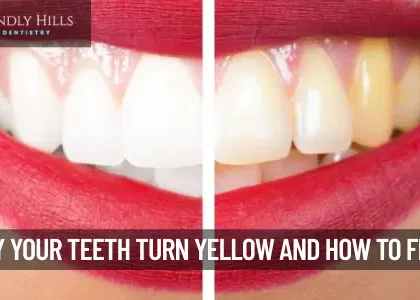Extraction: Safe & Effective Tooth Removal with Expert Care
Tooth extraction is a common dental procedure that can relieve pain & prevent further oral health complications. Whether because of severe decay infection or crowding a timely extraction performed by an experienced dentist like Dr. Fenal Shah in Whittier CA can restore your comfort & protect your smile. Regular dentist visits in Whittier CA allow early identification of dental issues helping patients avoid emergency procedures. Dr. Shah gentle approach & advanced techniques ensure a smooth extraction process with optimal recovery. Let us explore why dental extractions are sometimes necessary & how consistent dental care plays a role in prevention & healing.
Understanding Tooth Extraction & When This is / it has Needed
Extraction involves removing a tooth from its socket in the bone. Dr. Fenal Shah evaluates the situation carefully to determine if tooth removal is the best course of action. Common reasons for extraction include severe decay impacted wisdom teeth or preparation for orthodontic treatment. With advanced tools like digital X-rays & intraoral pictures Dr. Shah ensures a precise diagnosis before recommending treatment.
In some cases early intervention during routine dental examinations can prevent the need for an extraction entirely.
Recommended Dental Checkup Frequency
The American Dental Association suggests that patients maintain a dental checkup frequency of every six months to detect issues early. During these visits Dr. Fenal Shah examines your teeth & gums helping identify conditions that might lead to an extraction if left untreated. Patients with pre-existing dental concerns or those prone to decay may benefit from more frequent visits.
Preventive services like oral hygiene cleanings & oral cancer screening further protect your smile making extractions less likely in the future.
Special Considerations for Certain Groups
Tooth extraction needs & dental care frequency may vary based on age & health conditions:
- Children: Extractions may be needed to remove baby teeth that are not falling out on their own preventing misalignment.
- Seniors: Older adults may require extractions because of advanced decay or in preparation for dentures.
- Pregnant Women: Although elective procedures are postponed during pregnancy infections requiring extractions may be treated safely in the second trimester.
Dr. Fenal Shah tailors each treatment plan with care & sensitivity to these unique situations.
Benefits of Regular Dental Visits in Preventing Extractions
Frequent dental checkups with Dr. Fenal Shah dentist in Whittier CA help you avoid the need for extractions by:
- Detecting cavities & gum disease in their early stages.
- Providing timely fillings & crowns to save compromised teeth.
- Offering preventive treatments like sports mouth guards to prevent injury.
- Educating patients on at-home oral care to minimize decay & gum disease.
Preventive care is the key to keeping your natural teeth healthy & whole for a lifetime.
What to Expect During a Tooth Extraction
Dr. Fenal Shah ensures your tooth extraction experience is as comfortable as possible. Here is / here has what you can expect:
- Initial consultation with a complete dental examination & digital X-rays.
- Discussion of the procedure anesthesia options & post-extraction care.
- The extraction process performed with advanced tools to minimize discomfort & healing time.
- Post-procedure instructions including rest soft foods & follow-up care.
- Options for tooth replacement such as dental implants or dentures.
Every step is clearly explained & your comfort remains a top priority throughout the process.
About Dr. Fenal Shah
Dr. Fenal Shah is a compassionate dentist in Whittier CA with extensive expertise in restorative & general dentistry. She is committed to providing patient-focused care & follows American Dental Association best practices for safe effective treatments. From routine cleanings to advanced procedures like extractions Dr. Shah ensures that every patient receives the highest level of care.
Conclusion: Schedule Your Extraction Consultation Today
If you are experiencing dental pain or have been advised that a tooth extraction may be necessary trust Dr. Fenal Shah for gentle effective care. Routine checkups can help prevent the need for future extractions preserving your oral health. Schedule your consultation today with Dr. Fenal Shah in Whittier CA & take the first step toward a healthier pain-free smile.
Book your Extraction appointment today & experience compassionate dental care in Whittier CA.




